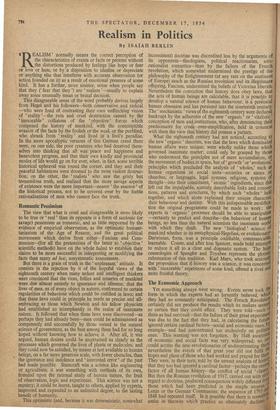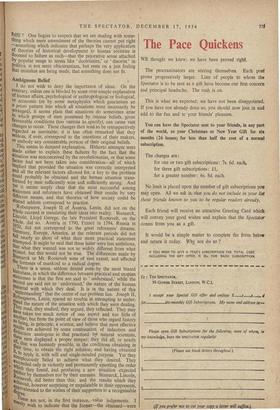Yet something always went wrong. Events never took the form
in which the experts had so fervently believed, which they had so constantly anticipated. The French RevolutiaP certainly did not produce the results which its maKers seems so certain that they could effect. They were told—such a, them as had survived—that the failure of their great experiment was due to the fact that they had, in calculating the future' ignored certain cardinal factors—social and economic ones, for example—and had concentrated too exclusively on politic!, ones. This warning was not forgotten. By 1848 awareilo of economic and social facts was very widespread; no 0", /could accuse the new revolutionaries of underestimating thel,•11; nevertheless the events of that great year did not fulfil hopes and plans of those who had worked and prayed for theid"' They were, in their turn, told by the newest analysts of histh that they too had ignored a cardinal factor—perhaps the coati's' factor of all human history—the conflict of social classe,s:t But then the Russian rewilution of 1917, carried out with stri,s, regard to doctrine, produced consequences widely different f 1.1),;( those which had been predicted in the simple utopias so Lenjn or the German Communists; the sequence of 1793,°.5 1848 had repeated itself. Is it possible that there is sometol amiss in theories which practice so obstinately declines fulfil ? One begins to suspect that we are dealing with some- thing which mere amendment of the theories cannot put right —something which indicates, that perhaps the very application of theories of historical development to human societies is doomed to failure as such—that the pejorative sense attached by popular usage to terms like doctrinaire,' or ` theorist' in Politics, is not mere obscurantism, but rests on a just feeling that mistakes are being made, that something does not fit.



































 Previous page
Previous page